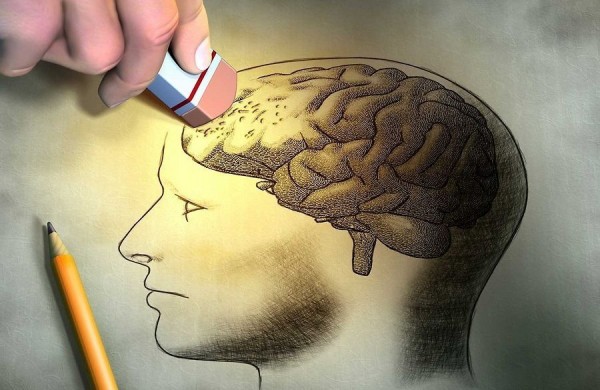Electroconvulsive therapy (ECT) is a procedure that is often given to people who are considered at risk for suicide. But a new study has found that ECT was no more effective at preventing suicide than any other treatment.
The researchers were Talya Peltzman and Brian Shiner at the Veterans Affairs (VA) Medical Center in White River Junction, VT, and Bradley V. Watts at the National Center for Patient Safety in Ann Arbor, MI. The study was published in the Journal of ECT.
The study included 14,810 people who received ECT and 58,369 who did not. The participants were all people who used the Veterans Health Administration between 2006 and 2015. Participants were matched on demographic and clinical characteristics using propensity risk scores, which allowed the researchers to account for different severity of mental health problems and psychiatric diagnoses and factors such as age and sex. The study followed the participants for one year to compare how many people died by suicide. The researchers concluded:
“After matching and controlling for remaining between-group differences in an adjusted logistic regression, the odds of suicide in the year after receipt of ECT were not statistically different from those of matched patients who did not receive the procedure.”
 According to Peltzman, Shiner, and Watts, people who received ECT tended to have more severe mental health problems, previous suicide attempts, and, in many cases, previous treatments have failed to improve them.
According to Peltzman, Shiner, and Watts, people who received ECT tended to have more severe mental health problems, previous suicide attempts, and, in many cases, previous treatments have failed to improve them.
ECT is generally viewed as having a quick and powerful protective effect. But this study contradicts that belief, finding that after one year, those who received ECT were just as likely to die by suicide as those who received other interventions for similar levels of risk.
Although their research demonstrated that ECT did not lower the risk of death by suicide, the researchers write that they feel “reassured” that patients at risk for suicide were receiving ECT.
“It is reassuring that such patients are being identified and are receiving treatment recommended for complex and severe psychiatric diagnoses,” they write.
They do not conclude that ECT should not be used for suicide prevention. Despite their finding that it was no better than anything else, they argue that the next step should be finding out how ECT can be used to prevent suicide.
“Understanding patterns of ECT practice and patient characteristics that provide the greatest anti-suicidal effects are important next steps in understanding how ECT can most effectively be used for suicide prevention,” they write.
ECT is a controversial procedure. Although it is promoted at medical centers as “safe and effective,” researchers and ECT recipients have raised concerns about both. Lawsuits regarding ECT safety are still pending.
Mad in America recently interviewed John Read (University of East London) and Irving Kirsch (Harvard Medical School) about their analysis, which found that studies of ECT efficacy were of extremely low quality and that there is a high risk of permanent memory loss after the procedure.
Read, Kirsch, and co-author Sherry Julo wrote:
“Given the high risk of permanent memory loss and the small mortality risk, this longstanding failure to determine whether or not ECT works means that its use should be immediately suspended.”
****
Peltzman, T., Shiner, B., & Watts, B. V. (2020). Effects of electroconvulsive therapy on short-term suicide mortality in a risk-matched patient population. Journal of ECT, 36(3), 187-192. DOI: 10.1097/YCT.0000000000000665 (Link)















When all else fails, try brain damage! Because there’s nothing better than going through life perpetually feeling like the village idiot.
Report comment
Brain damage makes you forget
Your pain and scars all get erased
Sex abuse making you miserable?
Pay us and we have just the fix
A kiss of electrical current
Ignorance and denial is bliss
If it is death in your desire
Kill your past with our volt of fire.
Report comment
Isn’t it time for psychiatry to retire. It’s got to be exhausting for them.
Report comment
The doublespeak, hypocrisy, and downright criminality of the psychiatric industry is truly astounding. I agree, the industry should be retired to the dustbin of history.
Report comment
What about its effectiveness at increasing the “risk” (likelihood)?
Report comment
I was unable to find the full text of the study, however I found the publication summary.
People whose brains were electrocuted had 31% higher suicide rates. This increase was labeled “statistically insignificant” despite the study having a large sample size. Apparently if a psych treatment increases suicides by 31% all you have to do is call it insignificant and the harm disappears*.
The authors allude to comparing Electrocuting brains with other psych “treatments”, if true ECT in this study could find it increase suicides by 31% on top of the 200% plus increase caused by psych drugs. It would also be good to see specifically how they adjusted the data based on whatever various factors they decided to adjust for.
* The study says that the CI is .96-1.96. This essentially means there are probabilities that ECT changes suicide by -4% all the way through increasing it by 96%.
https://pubmed.ncbi.nlm.nih.gov/32205732/
Report comment
We should give credit where credit is due!
Report comment
This doesn’t surprise me.
Report comment
I accessed the Minnesota Revised Statutes related to civil commitment. These listed conditions for commitment. These listed the requirement for “being a danger to self or others”. Being autistic or even mentally ill is not enough. However, we all know that this need not be proven. Only the desire of an RN or mental health worker is needed. One attorney said to me:” These are a tightly-knit group. They will support each other” meaning they will lie for one another. Does this rise to the level of conspiracy to deprive civil liberties. This means civil liberty and not civil rights. It is a constitutional issue. The Fourth Amendment underscores the right to our own bodies. Judges railroad these incarcerations when asked by some worker, and they do not consider evidence or defense.
What can anyone do to prevent further harm by “treatment”?
A 15 year old US supreme court decision made it clear: An person accused of mental illness will be released into the care of a relative or friend willing to do the care- taking. (https://caselaw.findlaw.com/us-supreme-court/422/563.html)
I’ve noticed that some people who calmly assert this defense are taken more seriously.
In addition, a 72 hour Hold may be used without real cause, but incarceration and treatment are legal actions. A summons served is required, and this allows the accused to access representation and mount defense. Of course the accusers may claim “emergency hold” but “emergency ECT” is ridiculous.
However, if there was no service of process, the decision to incarcerate or force treatment is not lawful. I would look into the process. Was it carried out lawfully? If not, throw the book at them and contact the media. There is an effort to make the public fearful of those so-accused, but the public can be equally fearful of the misuse of commitment. The “Hey it could happen to YOU” might gain support for the unjustly accused.
If the harm is already done, get a transcript of the proceedings. Chances are that you will find serious irregularities. These, you can use.
You have the right to call experts to testify to the medical conditions that were mistaken as mental illness. And never sign your rights away. They will try that. Everyone should have a well informed attorney because there is no way to repair physical brain damage after it is done.
Report comment